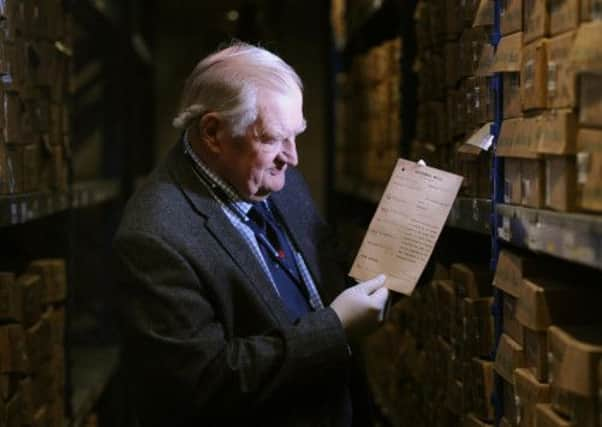Archive reveals soldiers’ last wishes in the face of death


Thomas Burns was typical of those who signed up for the Barnsley Pals.
While born in Wolverhampton, he had spent most of his working life working at Barrow Colliery in South Yorkshire and by the outbreak of the First World War he was 36 years old.
Advertisement
Hide AdAdvertisement
Hide AdResponding to a mass recruitment drive which hoped to boost Army numbers, the Pals regiments promised men they would serve alongside the same friends, neighbours and work colleagues they enlisted with rather than being posted arbitrarily.
Among the thousands who answered the call in 1914, Private Burns didn’t stand out. However, two years later he was to earn a unenviable claim to fame. In April 1916, while serving on the frontline in France, he became the first of the Pals to be killed in action.
According to reports, a machine gun shot penetrated his steel helmet and he died instantly. By 1918, Pte Burns was a statistic, one of almost a million British soldiers who went off to war and never came back.
The miner may not have left much of a footprint in history, but his brief last will and testament is now one of 230,000 written by British Empire soldiers that have just been uploaded to a new online database.
Advertisement
Hide AdAdvertisement
Hide AdOn enlisting every soldier was given a pocket book along with his basic uniform. It was to act as a record of service, but whenever they looked at the very back it was also a reminder of the war’s worst case scenario.
The final page was given over to a basic will and like Pte Burns, who wrote “in the event of my death I leave my property and effects to my wife Mary Elizabeth Burns”, most kept it simple. However, according to military historian Jon Cooksey even those brief words shed light on the personalities behind the names.
“We have very few documents relating to these soldiers which are written in their own handwriting,” says the author of Stand To – The Journal of the Western Front Association. “Some are little more than a scrawl and barely legible, while others write in really beautiful script and even a small section of handwriting is an indication of the relative educations of these men.
“Searching through the archive I found the will belonging to John Fleetwood, grandfather of Fleetwood Mac’s Mick Fleetwood. He was from Liverpool but he enlisted at Pontefract at the age of 31. He had a wife and two children and like a lot of the troops he died not from a gunshot but from disease. After serving in Gallipoli he died in a hospital in Malta from dysentery in December 1915.
Advertisement
Hide AdAdvertisement
Hide Ad“These documents are all part of a mosaic which helps us to build a picture of the men behind the statistics.”
A small number of the wills – around five per cent – also contain a treasure trove of letters penned by the soldiers and intended for loved ones back home, but which were never posted.
Some were deemed to contain sensitive information about the movements of the British Army and for the best part of a century have lain in row up row of sealed archive boxes. Largely forgotten, it is understood the Ministry of Justice only became aware of the archive a few years ago following a freedom of information request.
In one such letter, written on August 10, 1914, Private Joseph Witchburn of 2nd Battalion The Durham Light Infantry tells his mother, “I dare say this will be the last letter you receive from me until the war is over as I am prepared to move to the front at any moment.”